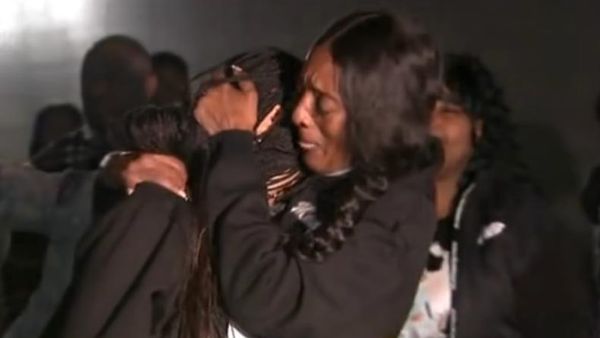
A Colorado woman who claimed her state’s support for same-sex marriage barred her from designing wedding websites, fueling a case that last month delivered a major US supreme court blow to LGBTQ+ rights, appears to have designed at least one wedding website before it was scrubbed from her archive.
The discovery, by the New Republic, followed reporting by that outlet and the Guardian which showed the request for a site for a same-sex wedding that lay at the heart of the 303 Creative v Elenis supreme court case appeared to have been a fabrication.
Represented by the rightwing Alliance Defending Freedom (ADF), the web designer behind 303 Creative, Lorie Smith, argued that her right to free speech, regarding her opposition to same-sex marriage, was “chilled” by a Colorado anti-discrimination law.
Claiming Smith was unable to design any wedding websites at all, for fear of falling foul of the state law, her attorneys told the supreme court: “For six years, she has been unable to speak in the marketplace.”
The six conservative justices who dominate the court ruled for Smith, delighting rightwingers and faith groups but appalling LGBTQ+ groups and other advocates of equal treatment under the law.
Questions over the supposed request for service have lingered. On Monday, the New Republic added to such disquiet.
The progressive magazine said that by using the Wayback Machine, a service from the Internet Archive, a researcher found what appeared to be an image of a wedding website designed by Smith around 2015.
The image, in a folder of “Recent Website Projects”, showed a couple walking on a beach, under a couple’s names and section headings including “You’re invited”, “Schedule”, “Accommodations” and “Travel Guide & FAQs”.
The name of the woman in the couple on the site matched the name on another image, for “Healthy4LifeColorado.com”. Other images were for a church, a site about French bulldogs and a campaign site for a Republican state politician. The last image matched a site currently live.
The apparent wedding site was found by Kate Redburn, a fellow at Columbia Law School in New York.
They told the New Republic: “I couldn’t believe it. The idea that she hadn’t made any wedding websites for anyone was so baked into the narrative around this case.”
The magazine said “a Colorado woman whose name matched the name of the bride” did not respond to requests for comment.
Through the ADF, Smith “acknowledged she had made the website as a gift for a family member and had subsequently removed it from her online portfolio before the lawsuit was filed”.
On Twitter, the ADF accused the New Republic of “manufacturing its fifth desperate attack” on Smith.
“Why? To impugn Lorie and delegitimise the landmark supreme court ruling in 303 Creative that protects every American’s free speech rights.”
Saying Smith had “nothing to hide”, the ADF said she designed the wedding site as a gift for her sister in 2014, around the time she “started exploring whether she could create custom wedding websites as part of her business consistent with her faith”.
The New Republic said the ADF “did not answer our questions about what knowledge its lawyers had of the website on Smith’s site”.
Jennifer Pizer, chief legal officer at Lambda Legal, who worked on the 303 Creative case, described why questions about its provenance and conduct remained important, in light of the ruling handed down last month.
“I think the public reaction we’re seeing is probably a mix of surprise, shock and anger that this case seems to have been contrived, and probably also that such an important court ruling might well have been based on facts that were not entirely true,” Pizer told the New Republic.
“People seem to be expressing understandable distress at the idea that this impactful case was won by people who might have misled the court – it’s alarming for multiple reasons.”
The ADF, Pizer said, “has been gunning for this result – and not just this result, but has been gunning to win licenses to discriminate against LGBTQ+ people and ways to undermine civil rights laws more broadly for many years.”







